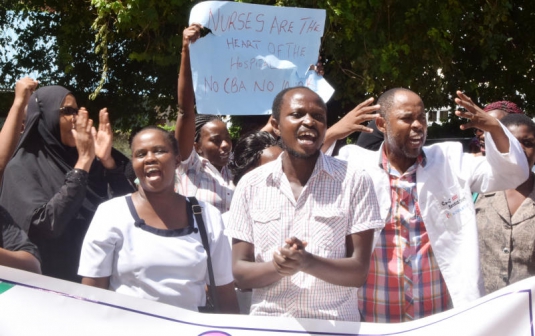×
The Standard e-Paper
Join Thousands Daily

Joseph Ondimu has been seeking dialysis services at the Kisii Teaching and Referral Hospital (KTRH) but since the nurses went on strike, he has had to travel more than 200km to Eldoret town.
A resident of Nyamache in Kisii County, Mr Ondimu goes to Eldoret three times a week for dialysis. Each dialysis session costs him more than Sh15,000.